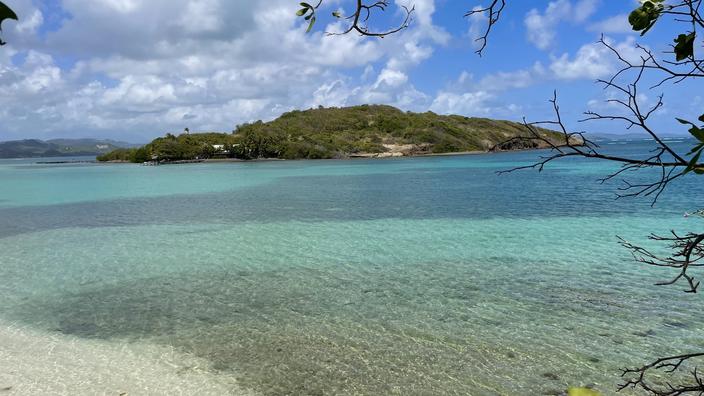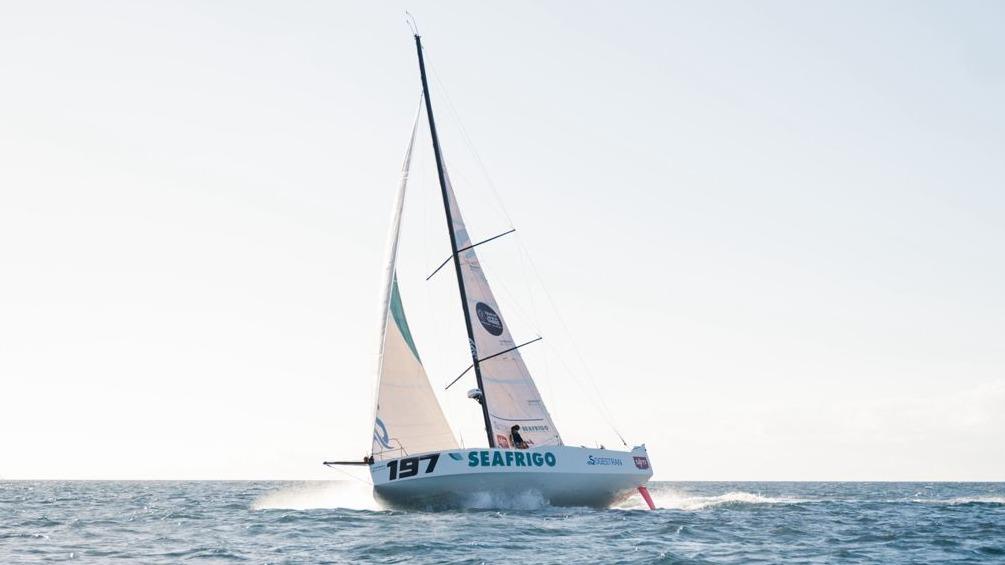"
We are direct victims of the crime
", insists one of the lawyers of the civil parties, Me Georges-Emmanuel Germany, before the three judges of the Court of Appeal of Fort-de-France, in Martinique, in a trial for demand “
justice and reparation
” for the descendants of slaves. The State is once again being sued for its role in the slave trade in an appeal trial which took place earlier this week and the result of which will be known on January 18, 2022. Facing the three magistrates, the 15 lawyers civil parties had installed irons and chains, used in the days of slavery. A strong image to start the pleadings: "
One day, France will pay
", Declared in particular Maître Alain Manville, lawyer at the bar of Martinique.
Read also In 2001, France recognizes slavery as a crime against humanity
For this trial, cameras were installed in the courtroom to film the proceedings, a first in the context of civil proceedings. The recordings will be sent directly to the justice archives. This trial is the result of a long legal battle initiated in 2005 by several associations in the West Indies and Guyana, but also in Africa, such as the MIR, the international movement for reparations, or even COFFAD, the girls' collective. and sons of deported Africans. After the vote of the Taubira law of May 21, 2001, recognizing the slave trade and slavery as a crime against humanity, the MIR, the CMDPA (World Council of the Pan-African Diaspora) and several natural persons initiated proceedings before the Tribunal of great authority of Fort-de-France.
Assignment of responsibility
This was a summons for procedural responsibility which was then appealed, then to the Cour de Cassation.
The justice having considered that the action was prescribed and that the Taubira law was devoid of any normative scope, in 2019, the civil parties therefore turned to the European Court of Human Rights.
The latter deemed this request admissible and should render its decision shortly.
At the same time as this procedure, a new legal action was initiated by these same civil parties at the judicial court of Fort-de-France in 2015. The judgment rendered on April 4, 2017 once again rejected the claim of the civil parties.
The latter appealed, and the trial therefore opened at the beginning of the week.
Read alsoWhy do we commemorate the abolition of slavery on different dates in France?
After having focused their pleadings on Monday on the atrocity of the crimes committed during the time of slavery, the civil parties focused on Tuesday to insist on the consequences still visible today in Martinique, Guadeloupe and France. Guyana. "
There is epigenetics, it is the last revolution
", told the judges Maître Evita Chevry, lawyer at the bar of Guadeloupe and Saint-Martin for the MIR. This science studies in particular how the environment can modify our genes in a reversible, transmissible and adaptive way. According to lawyers, recent research could explain the genetic transmission to descendants of slaves from trauma and stress-related reactions. "
The crime extended over two and a half centuries, and this repair may take two and a half centuries
, ”quipped Maître Alain Manville, one of the lawyers of the MIR in Martinique.
Inadmissibility and impossibility of reparations?
In the middle of the day on Tuesday, the two state lawyers, Maître Béatrice Dufresne and Maître Patrick Baudouin, in turn spoke.
The latter, a lawyer at the Paris bar and honorary president of the International Federation of Human Rights (FIDH), closed these two days of trial after an hour of pleading during which he recalled the legal arguments put forward. during previous MIR procedures.
Read alsoThe France of slavery told through archaeological excavations in France and overseas
"
If the crime against humanity is imprescriptible, how far do we go?
History is made up of massacre and barbarism
"declared the lawyer to the judges, while recalling that the French State must continue to support the peoples of the Antilles and Guyana in the"
consequences
", still visible today, of slavery.









